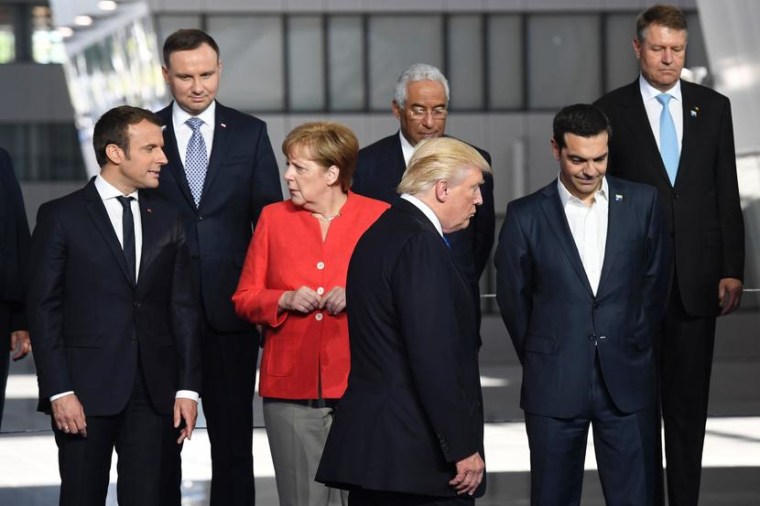In late September, the New York Times reported that much of the world was "watching the United States with a mix of shock, chagrin and, most of all, bafflement." The U.S. response to the coronavirus pandemic was doing extensive harm to our international standing, and as the article added, Donald Trump's refusal to honor a peaceful transition of power made matters worse.
The Times quoted a lawmaker in Myanmar -- a poor country struggling with open ethnic warfare -- saying, "I feel sorry for Americans."
As regular readers know, it is foundational to Donald Trump's worldview that the United States was an international laughingstock for decades, until he arrived in the White House and single-handedly restored the nation's global stature. He spent much of his term repeating the line constantly, seeing it as one of his most important accomplishments.
It was, however, a lie: International surveys have shown global respect for the United States falling to unprecedented depths during Trump's term.
I think it's fair to say conditions are vastly worse now.
Images of a pro-Trump mob swarming the U.S. Capitol on Wednesday reverberated around the world, where many are used to U.S. lectures about orderly transitions of power, not frenzied bids to overturn American elections.... Over and over, senior officials [abroad] expressed concern about the state of America's democracy and called for the outcome of the election to be respected.
Not surprisingly, the list of international reactions to this week's violence is not short, but suffice to say, U.S. allies were despondent, while U.S. foes were delighted, characterizing the events as the end of our moral authority on the international stage.
Venezuela, in particular, seemed eager to rub salt in the wound, issuing a written statement that read in part, "Venezuela hopes that the acts of violence will soon cease and the American people can finally open a new path towards stability and social justice."
Chancellor Angela Merkel of Germany and Prime Minister Boris Johnson of Britain, meanwhile, blamed Trump directly for having instigated mob violence.
But there was something the New York Times noted in passing that stood out for me:
In Russia, by contrast, the violence fit neatly into the Kremlin's narrative of a crumbling American democracy. The Kremlin released no official comment, but state television offered extensive late-night coverage of the attack on the Capitol, with the footage of the violence set to dramatic, orchestral music.
If the Republican were trying to help our adversaries undermine U.S. credibility, his actions wouldn't look much different from those he keeps taking.
"You know, we're respected again," Trump said as Election Day 2020 neared. "You may not feel it, although I think you do. You may not see it. You don't read about it from the fake news, but this country is respected again."
I desperately wish that were true. It's Trump's fault that it's not.

